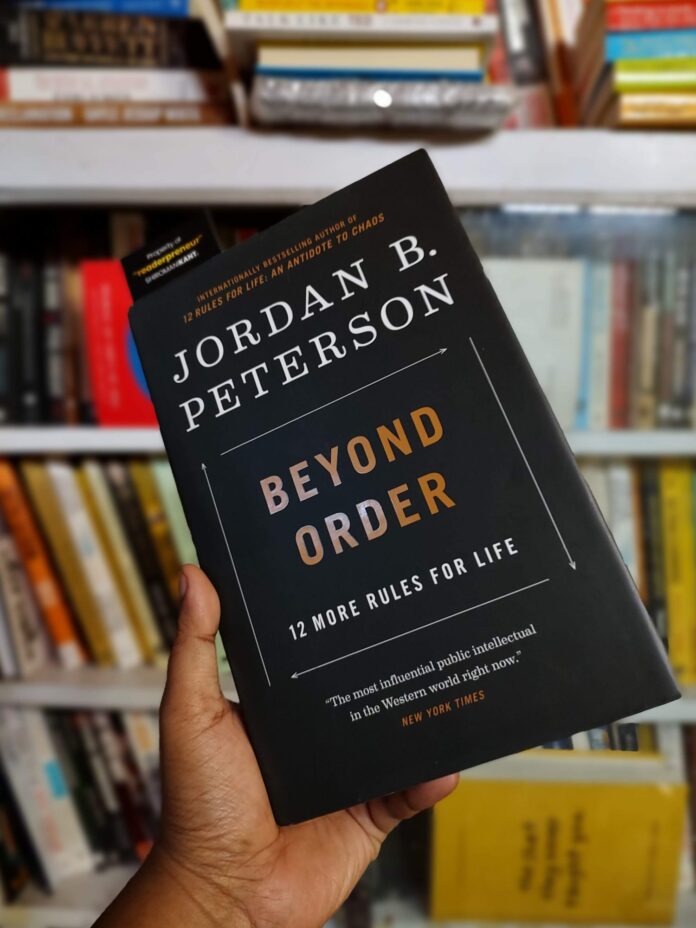By: By Bully Sowe
Language is the gateway to the soul of a people, and the Fula language is no exception. It is the heartbeat of millions across Africa, pulsating with cultural heritage, intellectual traditions, and a rich history. But for too long, this language has been confined to the periphery of the global discourse, relegated to the shadows of mainstream publishing and educational systems. That is why the recent announcement by Jordan B. Peterson that his bestseller Beyond Order will be translated into Fula is a breath of fresh air, a ray of hope, and a call to action.
On Wednesday evening, Jordan B. Peterson, the renowned Canadian psychologist and bestselling author, took to Twitter to make an announcement that sent ripples through the linguistic world. He tweeted “Beyond Order to be translated into seven African languages: Pulaar”. This news is a game-changer for Pulaar speakers, who will now have access to Peterson’s seminal work in their own language, and a significant milestone in the movement towards linguistic inclusivity.
As a Fula, I couldn’t be more thrilled about this news. This decision by Peterson is a huge leap towards preserving and promoting our cultural heritage, as well as providing access to valuable knowledge and ideas. It shows that our language is not just a means of communication but also a carrier of important ideas and perspectives. It is a step towards reclaiming our voice in the global discourse and promoting our cultural identity. It is a reminder that we have a rich history and a bright future ahead of us.
The Fula language is spoken by millions of people across Africa, with significant populations in countries such as The Gambia, Senegal, Guinea, Cameroon, and Nigeria.
However, like many African languages, Fula has been marginalized and neglected by mainstream publishing and educational systems. This has resulted in a lack of access to important literature and information in our mother tongue.
The significance of having a book like Beyond Order translated into Fula cannot be overstated. Peterson’s work is renowned for its insights into psychology, philosophy, and self-help. It is a valuable resource for anyone seeking personal growth and development.
But what does this mean for the Pulaar literature and historical context? It is a monumental achievement that a book of this calibre will be translated into Pulaar recognising the language’s importance and its potential to contribute to the global discourse. It is a reminder of the rich cultural heritage and intellectual traditions of the Fula people, which have often been overshadowed by dominant cultures.
The precedent set by Peterson’s decision is also significant. It sends a message that African languages are valuable and worth investing in. It challenges the notion that English or other European languages are the only ones capable of conveying complex ideas and knowledge. This will undoubtedly inspire other authors and publishers to consider translating their work into African languages, thereby promoting linguistic diversity and inclusion.
As we look towards the future, it is important to remember that the decision by Jordan B. Peterson to translate Beyond Order into Fula is not just a momentary triumph but a lasting legacy. It is a testament to the resilience and strength of the Fula language and culture, and a symbol of hope for all marginalized languages and cultures across the globe. We must continue to advocate for linguistic diversity and inclusion, to uplift the voices of the silenced, and to strive towards a world where every language is given its rightful place in the global discourse. For as Edward Sapir once said, “Language is the most massive and inclusive art we know, a mountainous and anonymous work of unconscious generations.” Let us work towards carving out a space for every language on this mountainous work, and in doing so, preserve the beauty and richness of our shared human experience.




